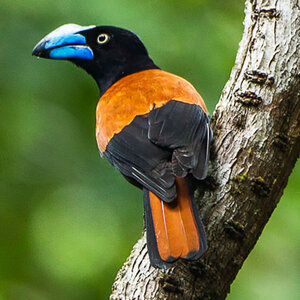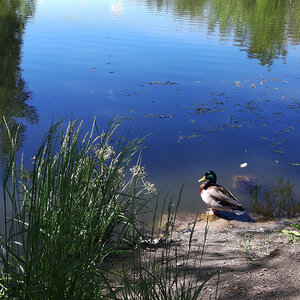Rockefeller Foundation Awards $2 Million to Wildlife Conservation Society
The New York City-based Rockefeller Foundation has announced a $2 million grant to the Wildlife Conservation Society in support of the Health & Ecosystems: Analysis of Linkages (HEAL) initiative.
With support from Rockefeller and the Gordon and Betty Moore Foundation, and in partnership with more than twenty-five public health, environmental conservation, and other organizations and agencies, the WCS-led initiative will study relationships between conserved ecosystems and several dimensions of public health in Southeast Asia and Madagascar. The grant from Rockefeller will support two of HEAL's five core modules, which are designed to evaluate what appear to be key linkages at the interface between health and the environment.
As part of the first module, researchers from the World Wildlife Fund and Harvard and Columbia universities will work to quantify the human health impacts associated with using fire for land clearing in equatorial Asia. The second module will attempt to quantify the nutritional impacts of impaired access to both marine and terrestrial wildlife populations that are being depleted by unsustainable harvesting practices in Madagascar. The remaining modules will explore linkages between upland deforestation on islands such as Fiji and waterborne diarrheal diseases such as typhoid in children and downstream coral reef productivity; deforestation patterns and malaria in the Amazon; and community access to protected marine areas, food security, income, and the psychological dimensions of having a "sense of place" related to secure coastal resource tenure.
"HEAL is the first initiative of its kind to systematically explore at a fine scale the functional relationships between the state of specific natural systems and different dimensions of human health," said Harvard principal investigator Dr. Samuel Myers, who will lead the two research modules sponsored by the Rockefeller Foundation. "In order to inform policy and natural resource management decisions in the real world, we need to understand, and be able to quantify, how a particular change in a natural system is likely to impact a specific dimension of human health. Only in this way can we introduce human health into the cost-benefit analyses of resource management decisions — an ability humanity needs now more than ever in our history."








